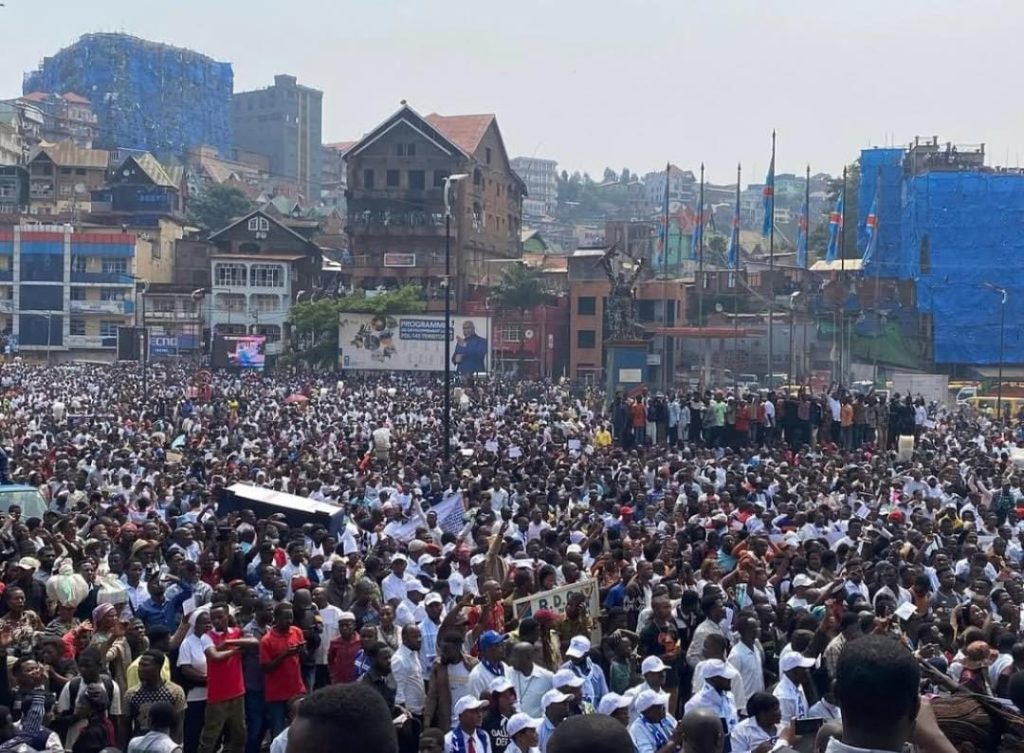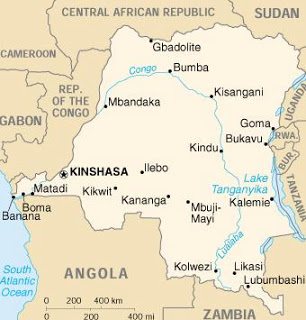LGBT+ people in occupied Bukavu must choose: Hide or flee
Moïse Manoël-Florisse, is an African-Caribbean online journalist keeping an eye…
The terrible toll of war, homophobia, and the end of American funding

Decades of war have led to an unbearable situation not only for LGBT+ citizens but also the general population of the eastern portion of the Democratic Republic of Congo (DRC).
The year has begun terribly, between the announcement of the suspension of American international aid for three months, since Jan. 20, and the resumption of fighting in South Kivu, culminating in M23 rebels’ capture of Bukavu on Feb. 15 with support from the Rwandan army.
While some people accuse Western nations of assisting the rebels by supporting of Rwanda, others, including the leaders of displaced persons camps in Goma, blame the West for supporting the area’s LGBT+ people through non-governmental organizations.

François (pseudonym), a human rights observer in the east of the DRC, describes what’s going on:
Erasing 76 Crimes: What is the situation in the east of the DRC?
François: Since Donald Trump took office, the 90-day suspension of US international funding has been a major blow to many civil society organizations in the eastern Democratic Republic of Congo, which has been a conflict zone since the mid-1990s.
As the region abounds in minerals such as coltan [columbite-tantalite ore, which contains the tantalum that is used in modern electronic devices], tungsten, gold, diamonds, tin and lithium, armed rebel groups manage to finance themselves through the illegal exploitation of deposits, with the support of neighboring Rwanda, in order to export these raw materials used in the manufacture of smartphones, capacitors or batteries for electric vehicles.
Today, it’s no longer simply local projects in favor of sexual and gender minorities that are frozen due to the Trump administration’s decisions. Every life is threatened.
The Congolese armed forces abandoned weapons of war as they retreated, leaving behind them “veritable trophies” which are now being used by former prisoners or criminals who were able to leave the penitentiaries that emptied when the rebels arrived.
At present, the people of Bukavu live cloistered in their homes to avoid extortion and insecurity. In any case, in terms of supplies, nothing is open outside: no food shops, no banks.
Erasing 76 Crimes: How are LGBT+ people affected?
François: We’re a long way from a situation of normality, and it’s said that if you leave your home, SMS and text messages are read at checkpoints, as are voicemails, which are listened to, as are photos and videos, which are viewed.
This is yet another risk for LGBT+ people. In Goma, North Kivu, which fell to the M23 rebels on Jan. 25, voices had already been raised inside [displaced persons’] camps that blame the current tragic situation on the presence of LGBT+ people. At the time, sexual health organizations were carrying out awareness-raising work there.
Now, with the M23 rebels and Western disengagement on the humanitarian front, sexual and gender minorities have no choice but to leave or rely on themselves, keeping a low profile.




